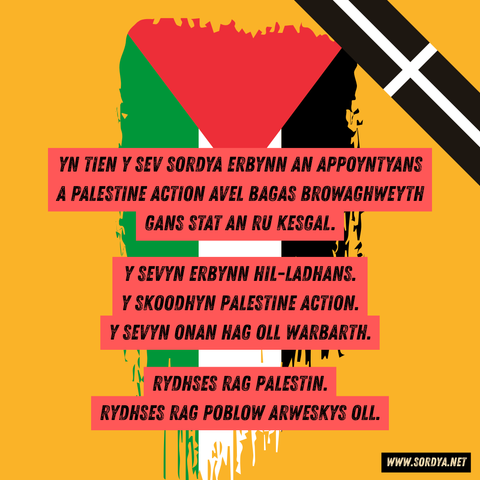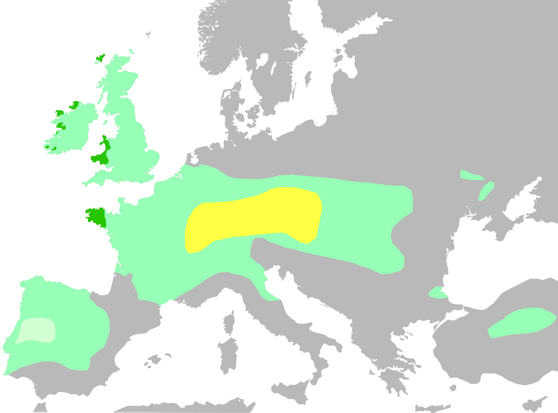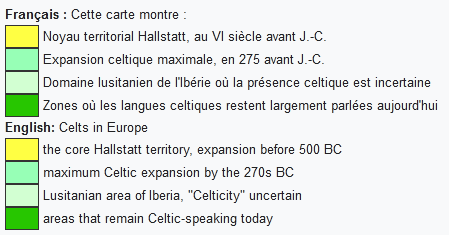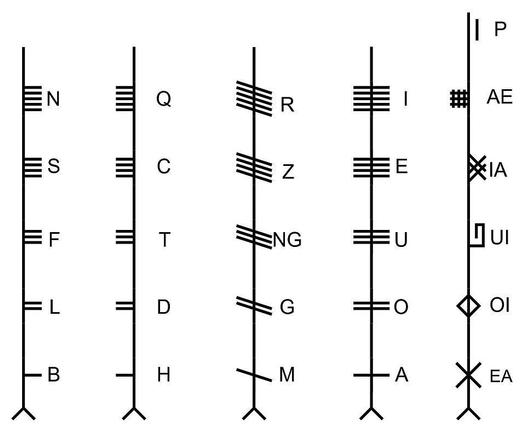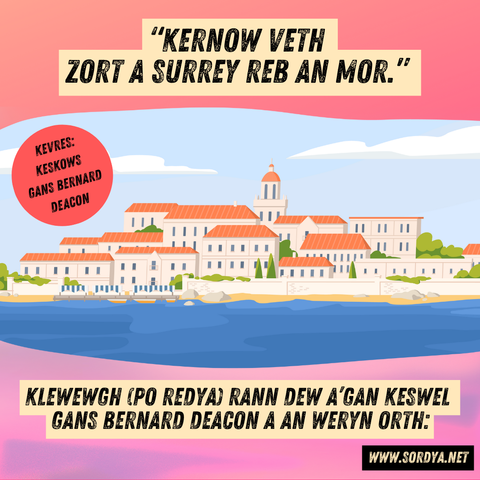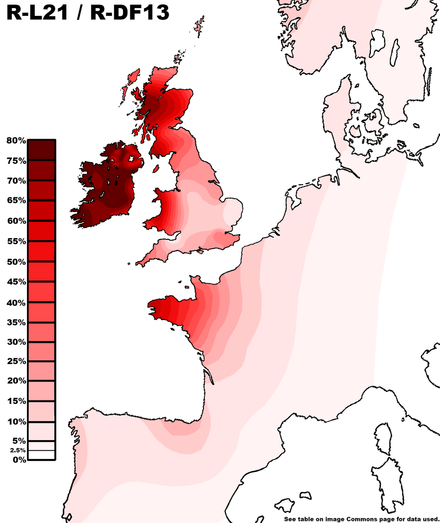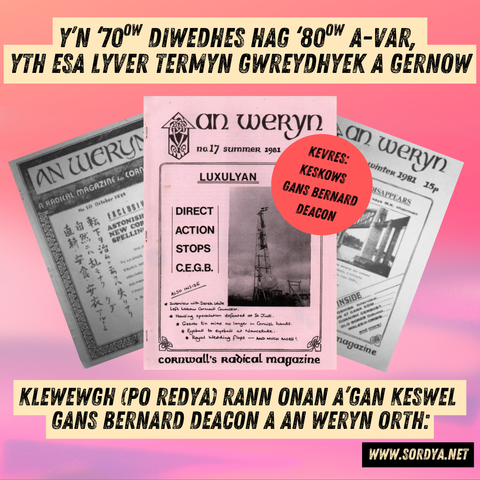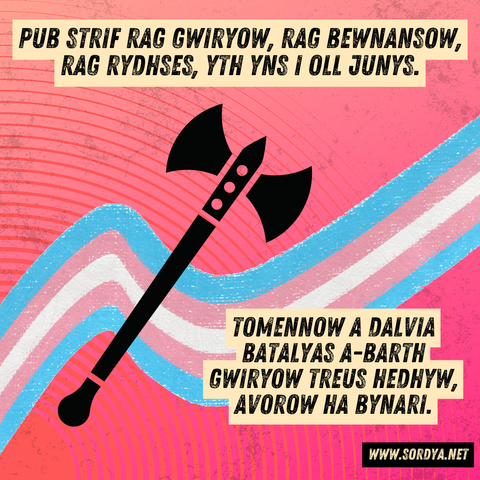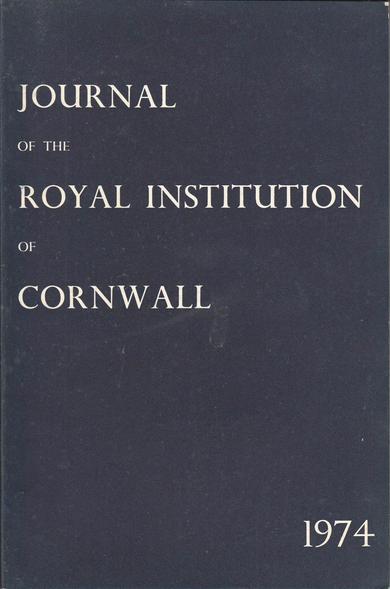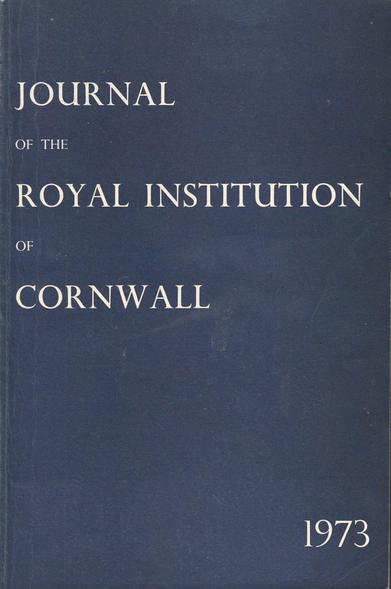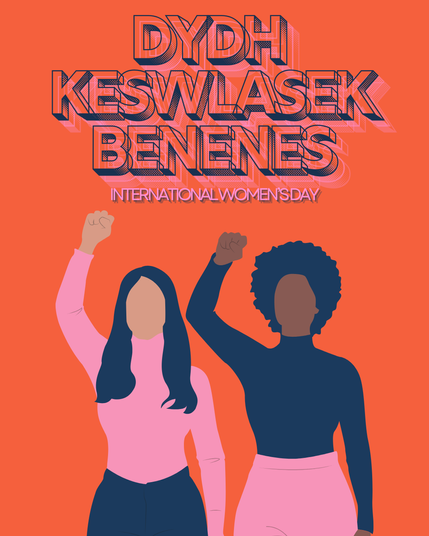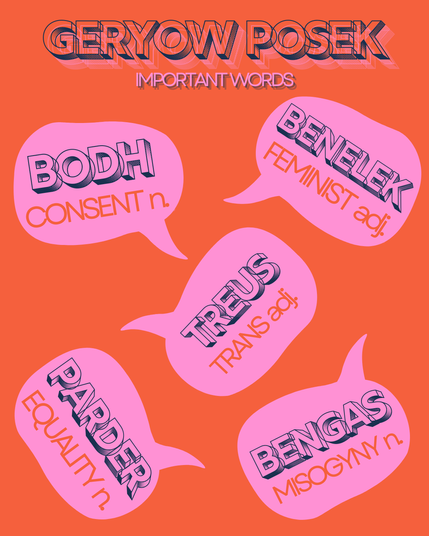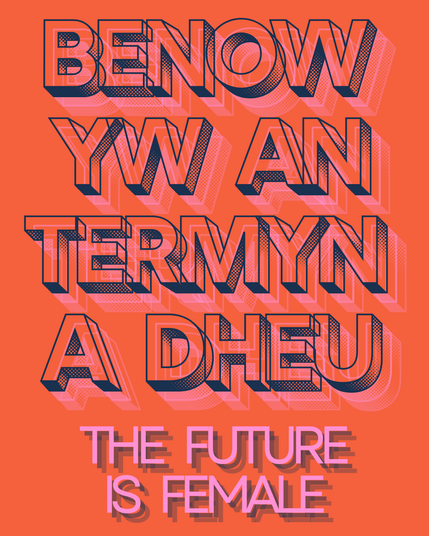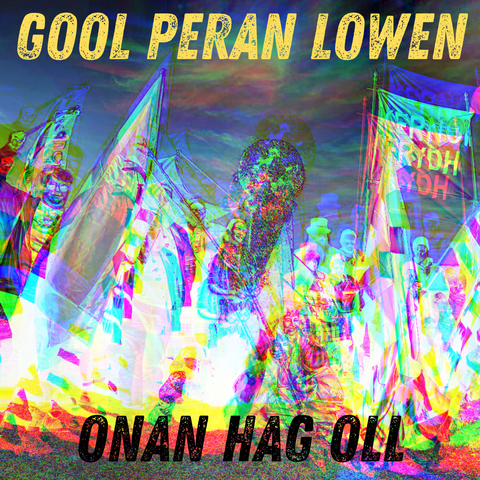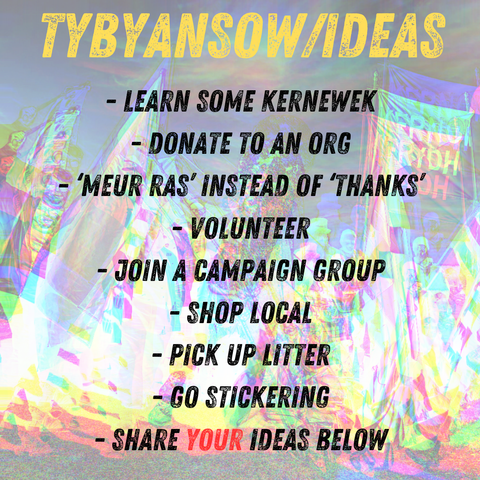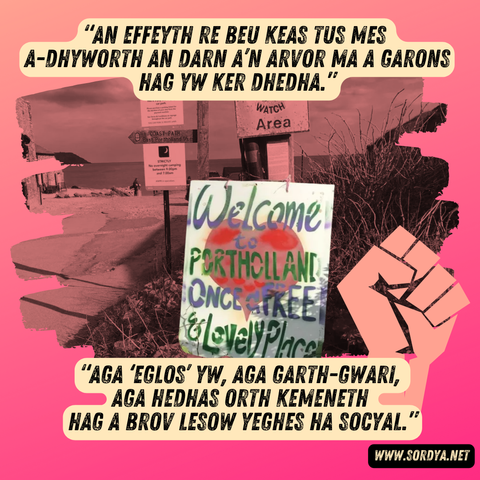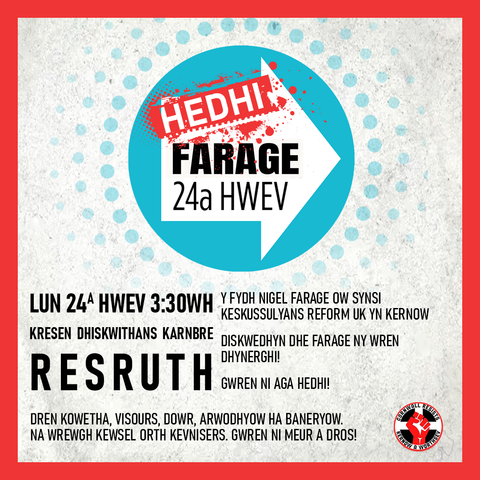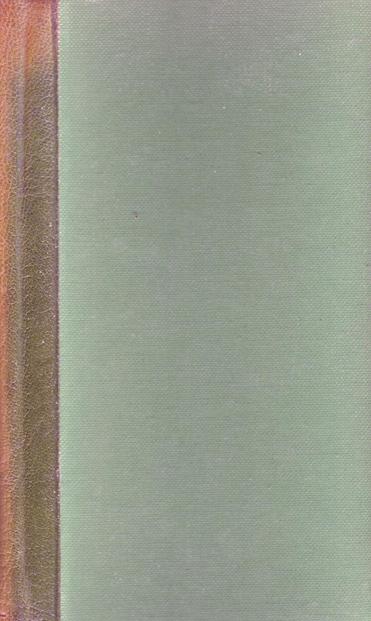A Conversation with Bernard Deacon: An Weryn – Keskows gans Bernard Deacon: An Weryn
Several months ago, two folk from Sordya sat down with academic and Cornish activist Bernard Deacon. Bernard is known in Cornish circles for his contributions to Cornish Studies, the language and nationalist politics. Our discussion will be presented as a short series due to its length. Our first section covers the Cornish leftist magazine An Weryn (The People) which Bernard helped to run.
Nans yw misyow, dew dhen a Sordya a gewsis gans akademek ha gweythreser a Gernow Bernard Deacon. Aswonys yw Bernard yn kylghyow Kernewek rag y gevrohow orth Studhya Kernewek, an yeth ha politegieth kenedhlogek. Agan keskows a vydh dyllys avel kevres berr drefen hirder. Agan tregh kynsa a doch lyver termyn a Gernow An Weryn (An Werin) may hweresas dhe Bernard gans restra.
Several months ago, two folk from Sordya sat down with academic and Cornish activist Bernard Deacon. Bernard is known in Cornish circles for his contributions to Cornish Studies, the Cornish language and nationalist politics. In our discussion, however, we focused on the late 1970s when Bernard was in his 20s. Much like today, this was a time when younger voices were pushing the Cornish Movement towards radical politics.
Our discussion will be presented as a short series due to its length. Our first section covers the Cornish leftist magazine An Weryn (The People) which Bernard helped to run and which we also include an edition of below. In parts to come we discuss housing, direct action and reflect on our strategies within the Cornish liberation and language movements.
Like our previous audio project, this conversation is part of the consciousness raising work Sordya can give the Cornish struggle. Independent leftist publication within Kernow is nothing new, nor are anarchists and collective action. We hope you find these insights into the history of our struggle educational and inspiring.
A transcription of the audio follows below the PDF.
Nans yw misyow, dew dhen a Sordya a gewsis gans akademek ha gweythreser a Gernow Bernard Deacon. Aswonys yw Bernard yn kylghyow Kernewek rag y gevrohow orth Studhyansow Kernewek, an yeth ha politegieth kenedhlogek. Y’gan keskows, byttegyns, ni a fogellas war an 1970s diwedhes pan o Bernard yn y 20ow. Kepar ha hedhyw, hemm o oos pan esa levow yowynka owth herdhya Movyans Kernow war-tu ha politegieth gwreydhyek.
Agan keskows a vydh dyllys avel kevres berr drefen y hirder. Agan tregh kynsa a doch lyver termyn a Gernow An Weryn (An Werin) may hweresas dhe Bernard gans restra ha may ma dyllans anodho yssynsys war-woles. Yn rannow a dheu ni a glapp yn kever annedhyans, gwrians didro ha prederi a’gan stratejiow y’n movyansow yeth ha rydhheans a Gernow.
Keffrys ha’gan ragdres son kyns, an keskows ma yw rann an ober drehevel warder may hyll Sordya y ri dhe strif Kernow. Nyns yw dyllo anserghek a gledh neppyth nowydh yn Kernow, na direwlysi na gwrians kuntellek. Ni a wayt y hwelir an manylyon ma a istori agan strif avel adhyskansek hag awenek.
Yma treylyans a’n son kevys yn-dann an PDF.
Part one of a conversation between Sordya and Bernard Deacon.
An Weryn No.17Download Sordya Onan: We were wondering if you could tell us about An Weryn. Firstly, what does “An Weryn” mean?
Bernard: Well, An Weryn means, I mean, it’s stolen from the Welsh, basically. ‘Gwerin’ means the people, basically. They still have them, don’t they? Cornish language get-togethers, Yeth an Werins.
Sordya Onan: Yeth an Werin.
Bernard: Which again is nicked from the Welsh. And Yeth an Werins began in the 1970s. I came back to Cornwall after a few years in London… in ‘76. I came back fired up by Breton, Welsh and Scottish nationalism, basically, in London. I joined MK in London and thought… well, I was a bit dubious about it, anyway, then. I came back to Cornwall and I was kind of looking for similar people. I remember contacting James Wetter. He ran the CNP. He was in MK before. He fell out with Len Truran, basically, in the 1970s.
And then I met James in a pub in Fowey. And he was very conspiratorial. I thought, “No, this isn’t… this isn’t much.” Then I met some people of my age at the time, in their 20s. And they were, at that time, heavily engaged in MK. So that brought me into MK. And we just started the magazine then, basically, I started the magazine. And there was just about half a dozen of us that broadly shared the same views that MK wasn’t socialist enough, effectively, I mean libertarian socialist.
I mean, you know, I say “a group with anarchist ideas”. Now, I was the only anarchist in it, but that’s why we called ourselves libertarian socialists, because they were a bit worried about the term ‘anarchist’!
And so that’s how it arose. I think we produced the first one—very, very amateurish when I look at it now, I haven’t looked at it for years until recently, very amateurish—must be about ‘78-ish, I think, when we did the first one. And it only lasted just about four years. And then sort of fizzled out in the early ‘80s.
I think it was partly a continuation of being involved in student newspapers. And, partly, it was kind of influenced, I suppose, by the whole ‘60s zeitgeist and the playfulness of Yippies and that kind of stuff. And that fed into it. So, I was producing fake news, effectively, in there just to rile people up. And it was just to stir up MK. And, you know, in parallel with it, we did engage in MK and try to push them for somewhat more radical policies.
I mean, MK in those days was quite… even the mainstream was, actually looking back at it, pretty radical. There was a guy called Michael Payne-Jago, he was parliamentary candidate in Southeast Cornwall in the mid ‘70s, and he was full out calling out for independence for Cornwall, which no-one would dare do now. He wasn’t left wing, particularly, he was a businessman, but he was very outspoken in his comments.
So there were people like that around. But there was also a lot of the old guard then—this is about five generations ago to you lot—who were quite what I would call sovereigntist in their views. They were constitutionalist in a British constitution way, very suspicious of what we were doing. So there was a big age gap between the people who were then about 50s-60s plus, who had been in MK when it flourished in the 1960s, and looked a bit askance at us, because we were all pretty similar backgrounds. We grew up in Cornwall, gone to university away, then come back, you know, deliberately came back as a kind of as a lifestyle choice. And I was teaching in London, I gave up teaching to come back to Cornwall. l basically gave up my career to be involved in the struggle, as it were.
Sordya Onan: So familiar!
Sordya Dew: It sounds very familiar in weird ways.
Bernard: Of course, I got back and found that there were—probably the same with you—several times when I thought “Has this been the right decision?” Because where is this struggle? That was the problem. But maybe it’s more obvious now. I don’t know.
Sordya Onan: What can you tell us about the political climate in Britain in the 1970s when you came back to Cornwall?
Bernard: Yeah, I mean, looking back at it, it seems really optimistic now, you know, with politics as they are now. Because there was a genuine feeling in the Celtic areas of Europe, that things were changing. And we were very inspired. We used to regularly go to Wales, Brittany in particular, not so much Scotland just because it was further away. But things were optimistic, things were moving in Cornwall, as well. You know, there were new ideas around. And we were part of those new ideas, I suppose.
So yeah, maybe it was just being young, but you look back on it from now, 50 years on, and I’m thinking, “Yeah, those were the optimistic times.” And then it kind of faded away afterwards, because there were new ideas in terms of general interest in leftist radical politics. And I think that was all inspired by the, you know, late ‘60s, early ‘70s student activism as well, which fed back in even into Cornwall.
But the interesting thing is it combined with the—what should I call it—Cornish patriotism that emerged in the ‘60s over overspill. That was the factor that triggered off Cornish nationalism, I think, overspill, which of course, could be used in a very populist rightwing way—and was by some people—or it could be turned into a sort of anti-colonialist struggle, which is what we were trying to do. We were saying that Cornwall’s a colony, we’ve been colonised. That was a simplistic, but, nevertheless, useful and simple analysis that people could grab on to.
Sordya Onan: I’d be interested to know, then, about your meetings with other people, like the Breton and Welsh, and how that informed what you did at home? What was it like meeting those people?
Bernard: Yeah, it was quite interesting, because the Welsh, and, of course, the Irish struggle, was in full flight at the time. The context is very different now. People were toying with direct action in those days. I mean direct action, as well. And even we talked about it in Cornwall, you know. There was a guy—I won’t mention his name, but he’s now a very responsible fella—who said “All we need is one bomb in a shop in Penzance in the middle of summer and that would shake the bastards up.” And he really believed that, you know.
Then there was another guy—who’s still around, he’s now retired, as are we all—and he was another one who was all the time talking about doing things like that, you know. And we did do a few things like that. Because our contacts in Wales were the Welsh Socialist Republicans at the time; I don’t know if they still exist now. They were pretty radical. And in Brittany, it was the UDB, it was more organisational. The UDB were drifting, though, into Stalinism at that time. So I kind of moved away from that, because I was spending my time in Cornwall, fighting the Trots and the Stalinists. So that wasn’t really on.
But we got different influences. You know, the influences in Brittany were more cultural, the influences in Wales were more political and we were in contact with people in the Irish Republican movement and that was obviously political, both in the Provos and the official IRA at the time, Sinn Féin.
Sordya Dew: One thing that did spring to mind, you talked about how there was the potential—and, fortunately, it didn’t really catch on—for some of the issues to be hijacked by rightwing populists. So, something that I’ve seen emerging, particularly within people I know, is abandoning the term ‘nationalism’ in favour of ‘autonomism’. The English nationalists have ruined the term for pretty much everyone, as have others.
I mean, it’s purely an aesthetic label, really. It means the same thing, but it’s a different word. But do you think that’s going to be potentially too confusing for new people? Because ‘autonomism’ is not really something that’s clearly defined, whereas ‘nationalism’ immediately conjures up a lot of images. But the issue some people have been finding is when you talk to someone new to the movement about Cornish nationalism, alarm bells go off. They often think, “Oh, that sounds like it could be quite right wing” when actually, from experience, it rarely is.
Bernard: Yeah, we had exactly the same debates in the 1970s about the terminology to use. And that’s why we pushed… if you look at An Weryn, you’ll find that we use the word ‘autonomist’ all the time, and not ‘nationalism’. We did avoid ‘nationalism’ for exactly the same reasons at the time, so nothing new about that.
I think I’ve mellowed towards nationalism or towards the word ‘nationalism’ over the decades since. And I’m not so worried about it now. I mean, the thing is to grab this word and, you know, recapture it basically. And there’s nothing wrong with nationalism. The thing is, do you think there’s a Cornish nation? If you do, you’re a nationalist.
Sordya Onan: Can I ask you then, when you’re writing An Weryn and you’re using these terms, what was it that you actually were imagining for Cornwall at that time?
Bernard: Ultimately, I was imagining Cornwall to be in control of its own future, which meant political devolution and then independence. So in that sense, I was a nationalist.
But then that was within the context of a general kind of devolution to community levels and, well, as far as you can go, you know, basically an anarchic society, which is the visionary dream. And it’s working towards that. So it’s really devolution to its fullest extent.
So I’d say that that was it. And that fitted with even rightwing nationalists, you know, because they also believed in devolution. Where you had to struggle with them was over the kinds of policies that went with that, and the ways of getting there as well.
Sordya Onan: It might be helpful to ask, then, what is your understanding of anarchism and Cornish anarchism?
Bernard: Yeah, well, I didn’t have any understanding of Cornish anarchism. Anarchism, there were anarchists in Cornwall before our generation. In fact, they were in Redruth. There was a guy called Dennis Gould, who produced a magazine called One and All for a few years in the late ‘60s, I think. I wasn’t in Cornwall then. But he wasn’t Cornish.
The anarchists then were kind of regarded as exotic outsiders, who just turned up. He ran a cafe for a bit, which failed miserably, as they all do. And, yeah, he’d gone. Just as I came back, he went. So, that kind of stream of anarchism went.
Cornish anarchism itself, I don’t think there is a tradition. I’ve not come across previous people I’d define as anarchist, particularly in Cornwall. So, the nearest would be libertarians within Cornish nationalism, basically. I never found any problem with broadly adopting anarchist ideas and the Cornish movement, particularly. I found more problem with… There was an upsurge of sort of Trotskyists, what became Militant, which now is the Socialist Party. They were quite active around Camborne and Redruth in the ‘70s. And we used to spend a lot of time in fruitless arguments with them.
Sordya Dew: Yeah, I know that feeling.
Bernard: Yeah, see, even now we’ve got that.
Sordya Dew: I imagine it’s probably the same ones, if we’re being honest.
Bernard: I wouldn’t have thought so, think most of them would be dead by now(!)
Read part two of the interview with Bernard where we discuss housing and tourism.
Sordya Onan: Yth esen owth omwovyn mar kalses derivas ow tochya An Weryn. Kynsa, pyth yw styr “An Weryn”?
Bernard: Ma’n Weryn a menia, en certan, thew ledrez athor an Kembrack. Ma gwerin pocarra an bobel. Whath pelha, mownz ago havaz whath, na ronz? Cunteliow et Kernoack, Yeth an Werins.
Sordya Onan: Yeth an Werin.
Bernard: Arta, thew ledrez thor an Kembrion. Ha’n Yeth an Werins thallathaz et an 1970ow. Me theath trea tha Gernow en ’76, ouga nebbaz blethan en Loundrez. Enflamiez o’ve gen nacyoneth Breten, Kembrack, Albanack en Loundrez. Me junniaz gen MK en Loundrez ha perdery … thera tabm dowt them, byttegens, e’n eur’na. Me theath trea tha Gernow ha whelaz teez haval. Ma co them tochia gen James Whetter. E rowliaz an CNP. Kenz esel MK o’va. E gothaz ameaz gen Len Truran por devri, et an 1970ow.
Ha metia gen James en tavern tha Fowey. Thera ev consilia re, tha’m brez’ve. Me brederaz, “Na, nag ew hebma por tha”. Nenna me vetiaz gen teez an blooth’ve urt an termen, et ago 20ow. Ha tho’ngy, en termen’na, kelmez en town tha MK. Della hedda reeg dry ve abera tha MK.. Ha poran nenna, tho dallethez gena nye an lever-termen, tho ve der reeg dalla an lever-temen. Ha thera dro tha whe’ ahanan d’reeg sengy an keth tibianzow nag o MK sosialyth lower, thew sosialyth frankethian lower.
Me lavar, why ore, “bagaz gen tibianzow anarkist”. Tho ve an idn anarkist mesk angye, buz tho hedna an praga der reeganye gun desscriffia vel sosialythorian frankethian, rag tho an rerol tabm troublez gen an ger ‘anarkist’!
Tho hedna fatel reegava saval. Me bredar d’reeganye dry meaz an kensa–por, por amaturack perama meeraz orto lebmen, nag o meerez genam termen heer tereba athewethez–raze boaz dro tha vlethan ’78, me dib, termen nye the weel an kensa. Ha na reegava dirria saw pager blethan. Ha dewetha carr reegava et an 80ow avar.
Me bredar tel’o pegianz a’m mellianz’ve en paperow newothow stuthorion war an eil. Ha tha’n gila, enspiriez ve’ma gen zeitgeist-oll an 60ow han gweel gez an Yippies ha zort a dra’na. Thera oll an rima maga berra thotha. Della, otoma ve screffa newothow foulz, tha brovokia teez. Ha tho point broaz tha sordia MK. Ha, whye ore, ganz ev, nye reeg kelmy gen MK hag assaya tha’go herthia rag tua policys tabm moy radical.
Therama menia, e’n dethiow’na, tho MK … whath mear an fros mear, saw en weer meeraz orto … radical fest. Thera dean creiez Michael Payne-Jago, tho’va ombrofyer rag an seneth Westminster en Kernow sooth-est en 70ow creas, ha tho’va tubm ha demondia franketh rag Kernow, neppeth na venga denveth betha tha weel lebmen. Nag o’va a’n tu war thelhar cleth, en enwegack, tho’va dean negys, saw por greav e vrez.
Della, thera teez carra hedna adro. Buz aweeth thera mear an gwithias coth en termen’na – thew hebma dro tha pemp heenath deracta whye – dr’o sovranieth por tha gungans. Tho’ngye scothorion an corf laha en sens an corf laha Breten Vear, lean a thowt a’n peth era nye a keel. Della thera adga heenath treeth an deez dr’o en dethiow’na dro tha 50-60 ha moy, an gye vee eseli MK pereeg e sowena et an 1960ow, ha meeraz tha dernewan ortonye rag tho nye gen megianz por haval. Tho teviez gena nye en Kernow, moaz carr tha universita, ouga nenna doaz trea, doaz trea a borpos vel dewis maner a vownaz. Ha thera’ve tesky en Loundrez, buz towlez hedna aman tha thoaz trea tha Gernow. Renownsia neb gawl tha junnia gen an omdowl, car dro’va.
Sordya Onan: Mar aswonys!
Sordya Dew: Y hevel pur aswonys yn fordh goynt.
Bernard: Heb wow, me thewelaz ha trouvia boaz – heb dowt an keth tra gena whye – par termen a berderaz ve “vee hebma an dewis compes?” Rag, pelea’ma’n omdowl’ma? Tho hedna an problem. Saw metessen thew moy apert lebmen. Na orama.
Sordya Onan: Pyth a yll’ta leverel dhyn a-dro dhe’n hin bolitek yn Breten Veur y’n 1970s pan dhehwelsys dhe Gernow?
Bernard: Ea, moth erama meeraz worthelerh orto lebmen, car drevol por optimistack, ha politegieth pocarr enz lebmen. Rag thera omglowans gweer e’n powyow Celtack a Europ, tel era tacklow a traylia. Ha tho nye por enspiriez. Teez a vetha a voaz tha Gembra gen composter, Breten Vean en enwedgack, kebmys a dermen tha Alban drefen e voaz pelha. Saw tho tacklow lean a wovenack, thera tacklow gwaya en Kernow aweth. Whye ore, thera tibianzow noweth adro. Ha thon nye radn an tibianzow noweth’na, me a soppoga.
Della, ea, metessen tho bez boaz younk, saw meeraz orto alebma, hanter cansvlethan moy, ha therama predery, ea, tho an rima an termeniow gen tan. Hag ouge nenna e wethraz, rag thera tibianzow noweth moy les kemyn dro tha poletegieth radical a gleth. Tho hedna oll enspiriez gen gweithreseth an stuthorion et an 60ow holerh, 70ow avar, whye ore, der reeg gorreby bera tha Gernow ken vee.
Saw an peth a les ew ev tha gezunia gen – pandra goth them e greia – gwlazcarenga Gernowak der reeg dalla cressia et an degvlethan 60ow, dro tha vednanz. Tho hedna an elven d’reeg dalla nacyonaleth Kernoack, therama tyby – vednanz, dr’olga boaz ewsiez en maner por populyst a’n dehow pelha, heb mar – hag e vee gen nebbaz – po traylia berra zort a omdowl bedn colonialeth, an peth era nye treea tha weel. Thera nye laul ter vee Kernow colonez. Tho nye colony. Tho hedna re sempel, metessen buz, bettegenz, examinianz vaz dr’olga teez sengy orto.
Sordya Onan: Y fia dhe les dhymm, ytho, godhvos a-dro dhe’th kuntellesow gans tus erel, kepar ha’n Vretonyon ha Kembryon, ha fatel gedhlas henna an pyth a wres tre? Fatel o metya’n dus na?
Bernard: Ea, tho mear a les, rag thera an omdowl Kembrack ha, heb mar, an omdowl Worthenack assendia en euhall an termen’na. Thew an settianz por thihaval a’n dethiow’ma. Thera teez a kwary gen gweithres own an dethiow’na. Therama menia gweithres own aweth. Ha ken vee en Kernow tho’va complez terwithiow. Thera dean – na rama compla e hanow, rag lebmen thewa pollat por worthy hag ev tha laul ‘Idn tanbellan berra shoppa en Penzans ha’n horssens venga diveena’. E gredgaz hedna, why ore.
Ha thera keen gwas, neb ez adro whath, aneilez lebmen, carra nye oll – ha tho’va keen d’rera oll an termen clappia dro tha weel tacklow pocarra hedna. Saw na reegonye besca. Kena th’o gon kevrednow en Kembra ort an termen an Poblegethorion Kembrack Socyalieth. Nag oma seer moth egy an gye bewa whath, metessen gellez marow. Tho’ngye por radical. Hag en Breten Vean thera an UDB, e vee moy ornez. Ke thera an UDB a kwaya tua Stalinieth ort an termen’na. Della, me wayaz carr athor hedna, rag en Kernow thera ve spenga a thermen’ve omthal gen Trotskiorion ha Stalinorion. Della nag o hedna terveth da.
Saw, nye reeg cawaz effects diffranz. Whye ore, tho an effects athor Breten Vean moy cultural, tho an re a Gembra moy politiack ha theren nye keztalkia gen teez et an gwayans Poblegethack Worthenack ha tho’ngye politiack, por thiblans, tha’n thow, Provos ha’n Sinn Fein officyal e’n termen’na.
Sordya Dew: Unn dra a lammas dhe’m brys, ty a gewsis a fatel o an possybyl—y’n gwella prys, ny wrug seweni—rag nebes a’n maters dhe vos argibys gans poblydhegoryon askel dhyghow. Ytho, neppyth a wrug vy gweles ow talleth, specyli gans tus a aswonav, yw hepkor an term ‘kenedhlegieth’ a-barth ‘omrewlieth’. Kenedhlogoryon Pow Sows a shyndyas an term rag pubonan moy po le, dell wrug tus erel.
Jevodi, nyns yw marnas label esthetek, yn hwir. Y styr an kethsam tra, mes yth ywger dyffrans. Mes a dybydh y fydh henna martesen re gemyskus rag tus nowydh? Drefen nag yw ‘omrewlieth’ neppyth hag yw styrys yn kler, ha byttegyns hware y konjur ‘kenedhlegieth’ meur a imajys. Mes an mater re beu merkys gans nebes pobel yw pan wrer kewsel gans nebonan heb godhvos a’n movyans a-dro dhe genedhlegieth Kernow, y sen klegh alarm. Yn fenowgh i a dyb “Ogh, yth hevel bos tamm a’n askel dhyghow” pan yw henna, a’m prevyans, tanow.
Bernard: Ea, tho an kethsam dalvaow gena nye dro tha’n erva tha ewzia et an degvlethan 70ow. Ha tho hedna rag fra nye tha boksa … mar rew whye meeraz ort An Weryn, why vedn trouvia an ger ‘autonomist’ oll an termen, nag ez nacyonaleth enna mear. Nye reeg voydia ‘nationalism’ awos hedna an termen’na, etho, terveth noweth dro tha hedna.
Me bredar me tha thoaz moy looan lebmen gen an ger ‘nacyoneth’ dreath an degvlethadniow. Ha nag oma mar troublez gans ev lebmen. Thew an dra tha senge an ger’ma hag e thaskemerez. Ha nag ew terveth cabm dro tha nacyonaleth. Ot an dra, rew whye predery dr’ew nacyon Kernuak? Mar rew whye, tho whye nationalyst.
Sordya Onan: A allav govyn ytho, pan skrifsys An Weryn hag usya an termys ma, pyth o mayth eses ta orth y dhismygi rag Kernow y’n pols na?
Bernard: War an dewa, thera ve desevos dro tha Gernow a rowlia e dermen igge toaz, ter reeg stirria digresednanz politiack ha nenna franketh. Della, en sens’na, tho’ve nationalyst.
Saw arta, tho hedna berra th’an settianz a zort a thigresednanz kemyn tha’n levol an gemeneth ha, wel, mar pell dr’olga whye moaz, en seer, whye ore, cowethianz anarkyst dr’ew an hendrez. Ha ma lavuria tua hedna. Della, en weer digresednanz tha’n kehega.
Etho, me venga laul dr’o hebma an peth. Ha ken vee hedna da lower gen nacyonalysts an tu dehow, terwithiow, drefen an gye tha gregy.ort thigresednanz aweth. An telhar omthal gungans veea zort a policys th’attaynya hedna, ha’n vorthow doaz ena aweth.
Sordya Onan: Martesen dhe les via ynwedh govyn, pyth yw dha gonvedhes a dhirewl ha direwl a Gernow?
Bernard: Wel, nag era onderstondianz anarketh Kernoack veth them. Anarketh, thera anarkistion en Kernow kenz gon heenath nye. En gweer, thera angye en Resruth, Thera dean creiez Dennis Gould, ter reeg dyllo lever-termen One and All derez nebbaz blethan et an 60ow holerh, me dib. Nag eren ve en Kernow an dethiow’na. Saw, nag ova Kernow.
An anarkistion e’n dethiow’na vee gwellez vel teez oncoth exotack, devethianzow alerh. Thera chy coffy gans ev rag teken, d’reeg fellel en trueth, carra brossa radn an rerol. Ha tho gellez ganz ev. Ha ve just toaz trea, e geath. Della, an zort’na a anarketh eath meaz a wel.
Anarketh Kernoack, na rama perdery dr’ew henco. Nag ez mettiez gennam kenz nebonen ter olgama desscrifa vel anarkyst, en Kernow e hunnen. Della, an nessa veea frankethorion agy tha’n nationaleth Kernoack, tha weer. Na reegave besca doaz bedn problemow cawaz tibianzow anarketh ha’n gwaians Kernoack, en enwedgack me drouviaz moy problemow gen … Tho derevianz a’n zort a Drotskiorion, d’reeg traylia tha Militant, ha thew lebmen an Party Sosialeth. Tho an gye bewack lower dro tha Gamborn ha Redruth et an 1970ow. Ha nye ewsiaz tha spenga re a dermen argia gungans ha na dalvee terveth.
Sordya Dew: My a wor an omglewans.
Bernard: Ea, meero, whath lebmen ez hedna gena nye.
Sordya Dew: My a breder dres lycklod yth yw an keth tus, mars on ni onest.
Bernard: Na vengama perdery endella, brossa radn veea gellez marow kenz lebmen(!)
Red rann dhew a’n keswel gans Bernard le may tochyn annedhyans ha tornyaseth.
Sordya
Moy Ahanan – More From Us
#70ow #70s #AnWeryn #anarchism #BernardDeacon #Cornish #Cornwall #direwl #history #interview #istori #Kernewek #Kernow #Kernowek #Keswel #Sordya
